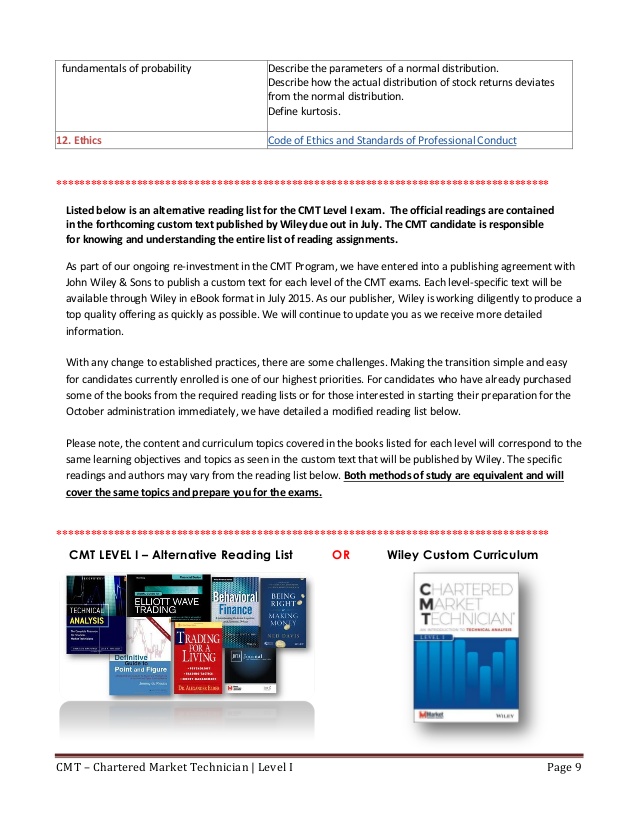

Peer pressure, respect for elders and taboos, fear of recrimination from neighbors, and consideration of neighbors’ needs all reinforce individual restraint in a commons. All of these restraints rely upon a stable social structure and an understanding of commons management. In a stable society, individual survival depends upon the prosperity of one’s neighbors, and every parent has an interest in ensuring that future generations will have access to necessary resources.
In environmental science, the “tragedy of the commons” is often cited in connection with sustainable development, meshing economic growth and environmental protection, as well as in the debate over global warming. It has also been used in analyzing behavior in the fields of economics, evolutionary psychology, anthropology, game theory, politics, taxation, and sociology. Something to note in light of the previous sections, Hardin’s originally cited example was not an historical example of a tragedy of the commons. The tragedy of the commons is an economic theory that postulates that individuals tend to exploit shared resources such that the demand greatly outweighs supply, and subsequently, the resource becomes unavailable for the whole.
This credit expansion brings about another typical feature found in the tragedy of the commons—external costs. In this case, everyone in society is harmed by the price changes induced by the issue of fiduciary media. These external costs are not taken into consideration by the banks that try to exploit the profit opportunities, because the property rights are not properly defined and defended by the legal system. Also importantly, Hardin’s arguments about the tragedy of the commons have been thoroughly analyzed and critiqued.

Finding sustainable options, rather than carrying on with what Sustainable Business Strategy Professor Rebecca Henderson calls, “business as usual,” directly addresses the impact of your consumption habits. Unfortunately this response has not grown in popularity, since many consumers feel boycotting a product won’t make a large enough impact to make a difference. Overproduction by fashion brands has created extreme product surplus to the point that luxury brand Burberry burnt $37.8 million worth of its 2018 season’s leftovers to avoid offering a discount on unsold wares. Public goods – A good where there is non-rivalry and non-excludability. Not a good where there is a tragedy of the commons, will not be a public good because it has the function of rivalry.
After the depletion of that section, the herd can move to the next section. When the other sections are moved similarly, the earlier sections who coined the term tragedy of the commons will have time to replenish. However, it is important to be mindful of the level of resources and stop before it gets to extreme scarcity.
The tragedy of the commons
Individual fisherman have an incentive to catch as many fish as possible. However, if many fishermen have this same motive, then it can lead to fish stocks being depleted as fish are caught at a faster rate than they are replenished. Ross speaks to several moral obligations and reflects common-sense moral commitments. Most people have similar attitudes toward politics and history, but we wrongly perceive large disagreements.
People likely assumed that everyone else would stock up as well and so the only solution was to preempt this scenario and stockpile food before the next person could. Again, people were thinking logically, but not collectively, and herein lies the relevance of the Tragedy of the Commons. Individuals took advantage of opportunities that benefited themselves, but spread out the harmful effects of their consumption across society. In the end, arguments for and against commons logic are based upon examples and interpretation. Logical proof, which the scenario set out to establish, remains elusive because the real world is very complex and because one’s acceptance of both premises and conclusions depends upon one’s political, economic, and social outlook. Among other important questions to consider is the proper role of supranational governments, such as the United Nations and the World Trade Organization.
More recently, the concept of the commons has been expanded to include air, water, the Internet, and medical care. Many people also object to the implication of commons logic that a system of private property is superior to one of collectively held property. In criticizing village commons, Lloyd defended the actions of powerful landholders who could, on a whim, evict a community of tenant farmers.
In theory, individuals could limit their use so that they don’t deplete the common resource. If everyone free-rides and maximises their use, then we get a situation of over-consumption. This idea of giving land a legal personality is intended to enable the democratic system of the rule of law to allow for prosecution, sanction, and reparation for damage to the earth. This legal development is not new, it has been put into practice in Ecuador in the form of a constitutional principle known as “Pacha Mama” . Governmental solutions are used when the above conditions are not met . Examples of government regulation include privatization, regulation, and internalizing the externalities.
The Tragedy of the Commons Strikes Back
The theory’s accuracy is a subject of some debate among economists, and some believe it may be highly limited in its application. Each herder wants to increase his yield and wants to consume shared resources as early as possible. So because of the overconsumption of the shared resources, common pasture gets degraded with the addition of each animal. So while individual herder gets benefits but overall shared resource gets depleted because of overconsumption which will affect the public in the long term.
This not only endangers the Pacific bluefin tuna, but also risks further marine ecosystem endangerment as a result. While a simple cup of coffee might seem harmless, coffee consumption is a prime example of the tragedy of the commons. Coffee plants are a naturally occurring shared resource, but overconsumption has led to habitat loss endangering 60 percent of the plants’ species—including the most commonly brewed Arabica coffee. Too many immigrants entering illegally and using up limited and precious resources of social services in the name of keeping families together.
- A common resource is a resource, such as water or pasture, that provides users with tangible benefits.
- How much does ownership fragmentation slow down technological innovation?
- In fact, as shown in the passage above, 28 years earlier, the concept was fully and more systematically stated by Ludwig von Mises as one part of the more general problem of insufficiently defined property rights.
- The rhetoric used on such occasions is designed to produce feelings of guilt in noncooperators.
All over the country, people are finding creative ways to help and empower others, not because they will personally benefit, but because they are driven by a feeling of collective responsibility. This is a key mindset to have if we’re going to overcome the tragedy of the commons, “flatten the curve,” and persevere through this once-in-a-generation challenge. We can see clearly how the tragedy of the commons is happening during this pandemic. Many young adults and conservatives are not alarmed and ignore public health recommendations from the CDC and WHO about social distancing. These folks are still going out to public places in large crowds, engaging in close contact with others, unaware that they might become infected or spread germs.
The collective effort of the community can prevent; on the other hand, individual seals can deviate from the goals of societal good, which can be kept in check by joint efforts. For example, the depletion of fish in a body of water can be prevented by prohibiting fishing during the months of reproduction. It’s not just biomedical research that’s susceptible to anticommons tragedy.
People are extolled not to litter, spit or destroy the environment. To a limited extent, the issue of tackling air pollution is also about individual habits. Getting pollution checks on personal vehicles, not causing garbage fires and not burning firecrackers are some of the most common ways individuals combat air pollution.
As a community, the people of the United States have imposed some rules and limitations on forest use that private landholders have not had. In a capitalist society, private landowners often benefit most by quickly liquidating natural resources , which allows them to move on to another area and another resource. Moreover, they will try to expand credit and issue fiduciary media as much as they can possibly get away with. Hardin’s theory does not state the rational behavior of an individual; rather, it states the selfishness of the human being because a rational being sees the long-term prospects also while making some decision. Because of the rise of the internet and digitalization, sharing and networking provide greater goods for society since there is no danger of depletion of resources on the internet.
internet resource
Residents in the already polluted Capital experienced something of a turning point on Diwali. The belaboured, particulate-loaded air was further bombed with firecrackers. People were angry not only because they could not physically breathe, but also because they felt the assault on their senses was wilful.
Some people have proposed massive propaganda campaigns to instill responsibility into the nation’s (or the world’s) breeders. But what is the meaning of the word responsibility in this context? When we use the word responsibility in the absence of substantial sanctions are we not trying to browbeat a free man in a commons into acting against his own interest? Responsibility is a verbal counterfeit for a substantial quid pro quo. The argument assumes that conscience or the desire for children is hereditary–but hereditary only in the most general formal sense. The result will be the same whether the attitude is transmitted through germ-cells, or exosomatically, to use A.
To date, the most debated application of anticommons theory has been in the area of drug patents and innovation . Since my 1998 Science article with Rebecca Eisenberg, there has been a flurry of follow-on papers and reports, many concluding that patents should be harder to obtain, in part to avoid potential anticommons tragedy effects. A recent book on the patent crisis concludes that, “the structure of the biotechnology industry seems likely to run high anticommons risks,” particularly when companies are attempting to bring products to market .
It’s easy for both individuals and organizations to fall victim to the tragedy of the commons. By developing a more sustainable mindset, you can become better aware of the long-term impact that your short-term choices have on the environment both in your personal life and at work. Traffic congestion is one of the best-known modern examples of the tragedy of the commons. According to a study by the Harvard School of Public Health, air pollution from traffic congestion in urban areas contributes to more than 2,200 premature deaths annually in the United States alone.
However, it is often controversial because agreeing and implementing quotas can be a source of friction. However, this co-operation is more difficult for an international resource like fishing in the north sea. In this case, the multi-national level fishing makes it more difficult to reach an agreement.
More Resources
This results in water that is toxic to wildlife and the people that live around and rely on it. Conversely, exercising restraint would yield benefits for all in the long-term, as the shared resource would remain available. Many of the economic and social structures recommended by Ostrom coincide with the structures recommended by anarchists, particularly green anarchism. A parallel was drawn in 2006 between the tragedy of the commons and the competing behaviour of parasites that through acting selfishly eventually diminish or destroy their common host. The idea has also been applied to areas such as the evolution of virulence or sexual conflict, where males may fatally harm females when competing for matings. The same concept is sometimes called the “tragedy of the fishers”, because fishing too many fish before or during breeding could cause stocks to plummet.
What is the Tragedy of the Commons?
We must make room for every human if we are going to build the political power necessary to face down the looming oil tankers and coal barges that send heavy waves in our direction. This is a commitment at the heart of proposals like the Green New Deal. This is what makes attacks on individual behavior so counterproductive.